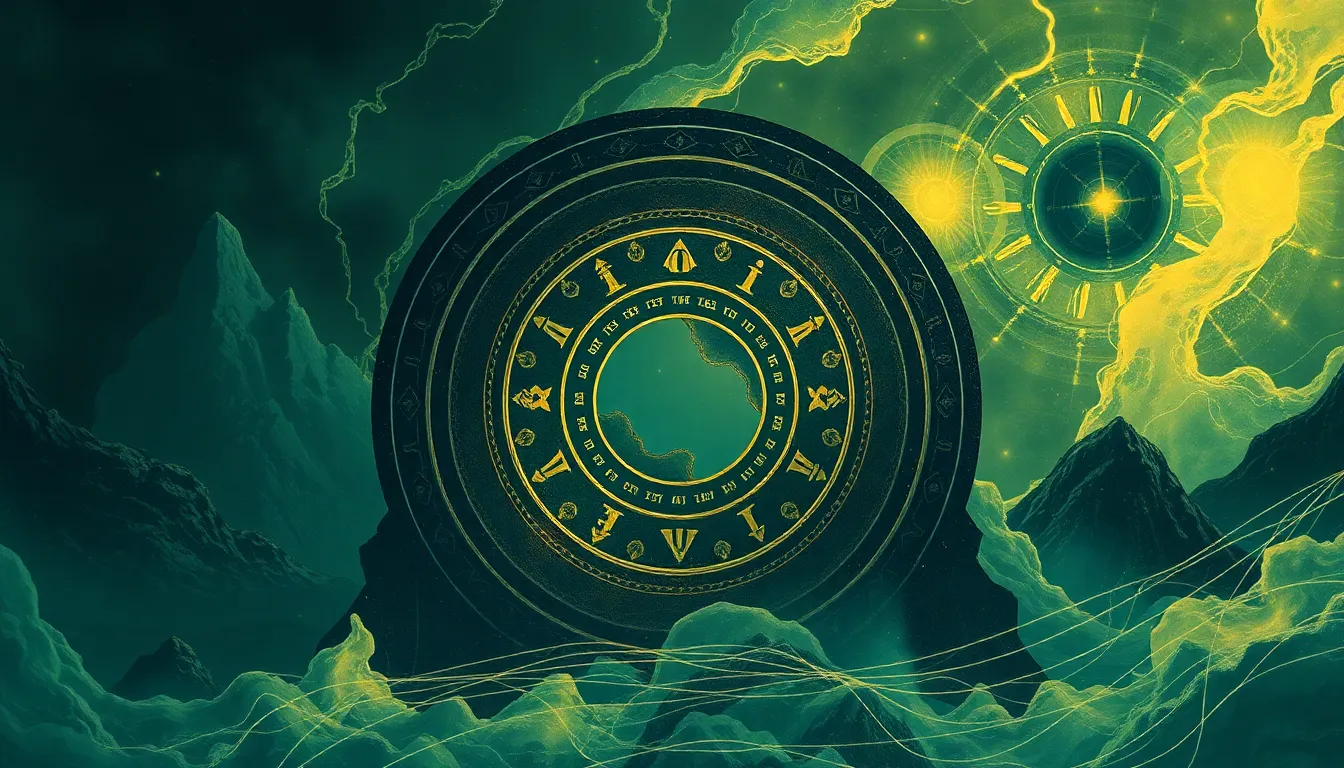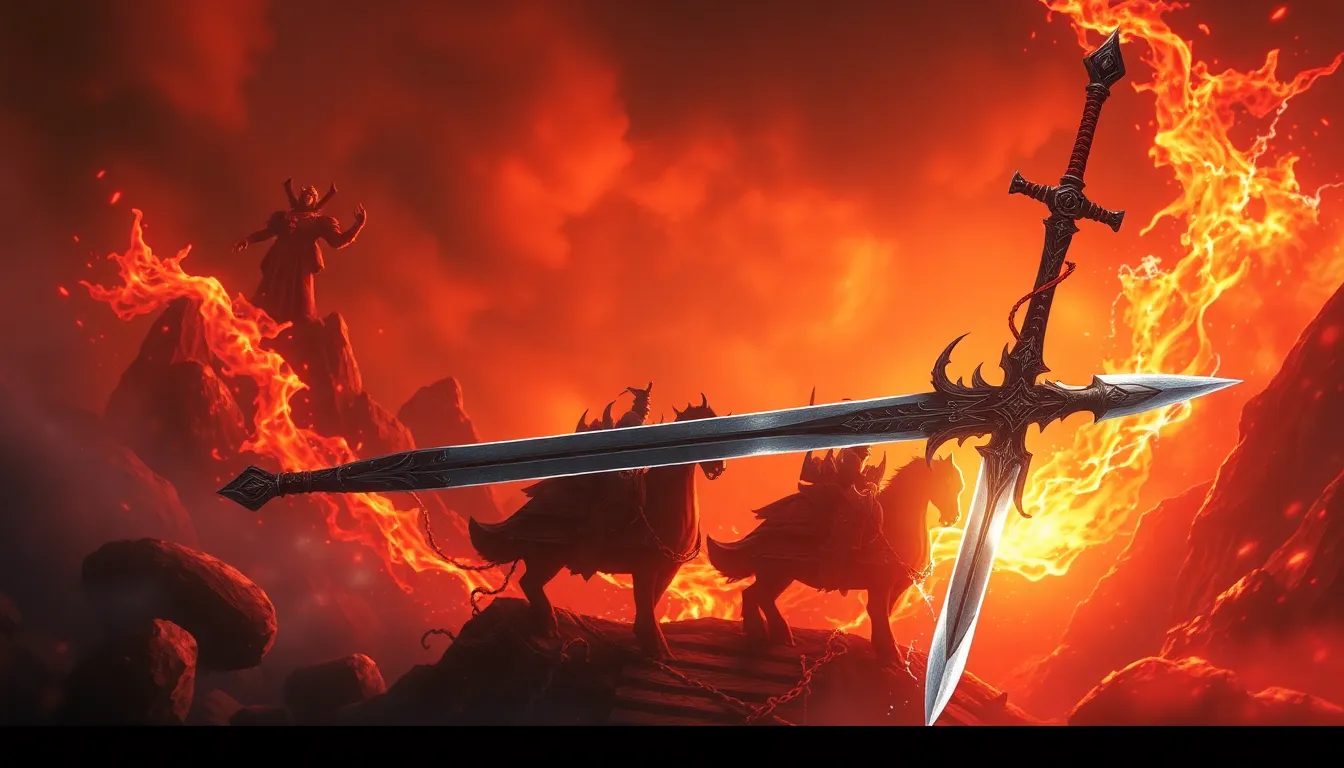The Quest for the Unknown: Myths That Inspire Exploration
Introduction
Exploration is a fundamental aspect of human experience, defined as the act of traveling through an unfamiliar area to learn about it. This pursuit has shaped our understanding of the world and has played a crucial role in human history, leading to discoveries that have transformed societies. Throughout time, myths and legends have accompanied exploration, serving both as inspiration and as cultural touchstones that reflect humanity’s innermost desires and fears.
Myths surrounding exploration often provide narratives that fuel curiosity and adventure. They invite individuals to venture into the unknown, offering a blend of hope, fear, and the promise of discovery. These stories have been passed down through generations, influencing not only the explorers of the past but also the way we perceive the world today.
The Role of Myth in Human Curiosity
Myths play a significant role in shaping human curiosity. They tap into our psychological need for understanding, explaining the unexplainable and offering frameworks for our understanding of the world. Myths can:
- Provide narratives that contextualize human experiences.
- Encourage individuals to confront the unknown.
- Instill a sense of wonder and adventure.
By presenting fantastical elements and extraordinary stories, myths can ignite the desire to explore, prompting individuals to venture beyond their comfort zones in search of answers and experiences.
Ancient Myths and Their Exploratory Inspirations
Many ancient myths have inspired explorers throughout history. One notable example is the story of Odysseus in Greek mythology. His epic journey home from the Trojan War, filled with encounters with gods, monsters, and temptations, embodies the spirit of adventure and the quest for knowledge.
These ancient tales influenced the Age of Exploration during the 15th and 16th centuries, as explorers sought to uncover the lands and peoples that had previously existed only in myth. The thirst for discovery was often intertwined with the desire to validate these legends.
The Legend of Atlantis: An Eternal Quest
The myth of Atlantis, first mentioned by Plato, speaks of a powerful civilization that disappeared beneath the waves. This story has captivated imaginations for centuries, prompting countless expeditions and theories regarding its existence.
The search for Atlantis has fueled real-world exploration and scientific inquiry, inspiring adventurers to seek out sunken cities and ancient ruins. This myth has become a symbol of humanity’s enduring quest for knowledge and understanding, driving explorers to uncover truths hidden beneath the surface of the earth.
Dragons and Sea Monsters: Fear and Fascination
Mythical creatures like dragons and sea monsters have played a significant role in maritime exploration. These beings often represented the fears of the unknown that sailors faced when navigating uncharted waters. Historical accounts abound of explorers encountering “monsters,” which were likely exaggerated accounts of real-life creatures or events.
For instance, the sighting of a giant squid or the misinterpretation of whale behavior could have contributed to these myths. These stories not only reflected the anxieties of sailors but also emphasized the adventurous spirit required to navigate the seas:
- Fear of the unknown often led to caution and respect for the ocean.
- Fascination with these creatures spurred the desire for exploration and discovery.
The Fountain of Youth: The Allure of Eternal Life
The myth of the Fountain of Youth, a legendary spring that supposedly restores the youth of anyone who drinks from it, has inspired numerous explorations, most famously by Juan Ponce de León in the early 16th century. His quest for this mythical fountain symbolized humanity’s desire to conquer time and mortality.
Ponce de León’s exploration of Florida was driven by this myth, leading to the establishment of Spanish presence in the region. The allure of eternal life continues to captivate explorers and scientists alike, representing a fundamental human desire to understand life and its limitations.
Cultural Myths and Their Modern Day Explorations
Even in contemporary times, myths from various cultures continue to inspire exploration. For example, the search for Bigfoot and the Yeti draws on ancient folklore that speaks to humanity’s fascination with the unknown. These modern-day quests are often fueled by:
- Desire for proof of existence beyond the known.
- Curiosity about unexplored territories and hidden creatures.
Such explorations not only seek to validate myths but also connect people with their cultural roots, showcasing how traditional stories can inspire modern adventures.
The Intersection of Science and Myth
The relationship between myth and scientific exploration is complex and intriguing. Myths can sometimes lead to scientific inquiry, as they often pose questions that require investigation. For instance, myths about the origins of humanity have driven anthropological and archaeological research, leading to groundbreaking discoveries.
Furthermore, advancements in exploration technology and methodology can be inspired by myths. The desire to find evidence of legendary creatures or lost civilizations often drives innovation in fields such as:
- Archaeology
- Marine biology
- Space exploration
Thus, myths can serve as catalysts for scientific progress, pushing the boundaries of what is known and what can be explored.
The Future of Exploration: New Myths in the Making
As we look to the future, new myths are being created that will shape explorations yet to come. The prospect of colonizing Mars, for example, is a modern myth that captures the imagination and inspires a new generation of explorers. The search for extraterrestrial life and the potential for interstellar travel are also emerging narratives that will guide future explorations.
Modern storytelling, whether through media, literature, or technology, plays a crucial role in shaping these new myths. By inspiring curiosity and wonder, these stories can motivate individuals to pursue exploration in ways that were previously unimaginable.
Conclusion
The enduring power of myths in inspiring exploration is a testament to the human spirit. Myths provide a framework for understanding the unknown, encouraging individuals to embark on journeys that expand their horizons. As we navigate the balance between myth and reality, it is essential to recognize the role that these stories play in fostering curiosity and adventure.
In the quest for the unknown, myths will continue to inspire explorers, reminding us of the unquenchable thirst for discovery that lies at the heart of humanity.




